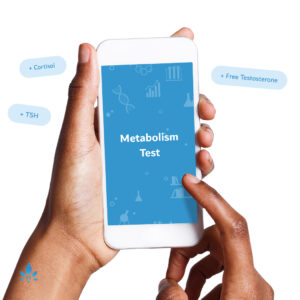What is Cyclical Vomiting Syndrome (CVS)?


- Cyclical Vomiting Syndrome (CVS) sufferer, Rebecca Griffiths gives us an overview on the illness.
- Patients with CVS experience severe vomiting, unrelenting nausea and lethargy, with no apparent cause.
- CVS is very rare and difficult to diagnose with no known cure or treatment.
About Cyclical Vomiting Syndrome
I’m a patient who suffers from CVS. It is a rare condition that mainly affects infants and children but occasionally develops in mid-late twenties. It is characterized by recurrent, prolonged attacks of severe vomiting, unrelenting nausea and lethargy, with no apparent cause. During an episode, vomiting persists at frequent intervals, 5-6 times or more per hour at the peak, for periods ranging from hours to 10 days or more (CVSA UK). The episodes are completely debilitating and tend to be similar to each other in symptoms and duration: my episodes always last for 5 days. The sufferer is generally in good health between episodes which makes it very difficult to diagnose and the exact cause is unknown (NORD). With traditional face-to-face appointments, it is very unlikely that a doctor/consultant will witness the acute symptoms of CVS as a patient is very unlikely to attend if they are mid-episode. I am always hospitalised.
Other symptoms can include pallor (looking white/grey or ‘like a ghost’), sufferers may feel the need to drink a lot (so that the body can dilute the stomach acid), feel so unwell that they are unable to move or talk and may also feel the need to induce vomiting (make themselves sick) as the body incorrectly believes that emptying the stomach will stop the vomiting (NORD). I know I used to do this when I was first diagnosed but soon learnt that it didn’t help.
Why the delay in diagnosis?
It is very tricky to diagnose as there is no known cause, no diagnostics/tests and nausea and vomiting is a common symptom of lots of childhood illnesses. Young women in particular are often either treated as hypochondriacs or misdiagnosed with an eating disorder. Other mis-diagnoses include Gastroparesis (in my case as I’m also a T1 Diabetic). The condition is now viewed globally as neurological (Cyclic Vomiting Syndrome – NORD (National Organization for Rare Disorders) but despite this, almost all sufferers are treated by a gastroenterologist which causes further delay to diagnosis and potential treatment. In reality, patients either have to rely on ‘pot luck’ on seeing a doctor who has come across it before or frantically search online for someone they think will be able to help. In almost all cases that I have come across, information is primarily found using social media (private groups) accessed by the adult patient or relative of a child-sufferer. As there is so little official research into the condition, patients and their families almost entirely rely on others in these groups to find ways of reducing/terminating episodes as well as making a note of any known ‘triggers’ to an episode as well as any medication that works for others that they can suggest to their doctor. One of my main triggers is adrenalin. If I’m looking forward to something, the chances of me being able to do it are minimal as the excitement triggers my vomiting.
What else can trigger an episode of CVS?
There is so little known about CVS, however, patients who have kept a symptom diary can often identify specific triggers. As aforementioned, one of mine is adrenalin but I can also identify triggers such as eating foods containing MSG and several female patients I know have severe disruption to their regular menstrual cycle, often not having had periods since they suffered their first episode. This points to a hormonal element in adult patients. Lack of sleep is almost always a trigger in both children and adults and is most likely to trigger an episode an hour or two before they would usually wake up in the morning (NORD). In severe cases like mine, often the only way to find relief is by using sedation and often if I’m in a ‘deep sleep’, sedation (in a hospital setting) can terminate an episode.
What is the treatment for Cyclical Vomiting Syndrome? Is there a cure?
There is no known cure and no real treatment that works across the board. Patients find medications that help them through trial and error. As most patients are treated by a gastroenterologist, mainstream anti-emetics are used with little effect. Those who are treated by neurologists tend to be treated with anti-migraine medications which seem to be more effective. There are currently a few medications being trialed across the world for CVS but as it is a rare condition and there’s a limited number of end users, there is little incentive for pharmaceuticals to find/develop potential medications specifically for use in CVS. NHS England suggest that patients are given ‘supportive care’ including plenty of fresh air/ventilation, low lighting or a dark room, gentle music and a calm atmosphere although from personal experience I know that this is very hard to achieve due to the fact that patients are usually treated in busy bays with other patients, bright lights, lack of windows and lots of noise. Scalding hot baths/showers (or as hot as sufferers can handle) is also reported to help (NHS England).
5th March, is International Cyclical Vomiting Awareness Day. Venues across the world are lit up in blue in the evening, including Niagra Falls in North America. It is hoped that with increased awareness, more patients will be correctly diagnosed and more research conducted to find a treatment and maybe one day, a cure.
Key CVS Facts:
- It mainly affects children between the ages of 3-7 years
- It is estimated that as many as 2% of babies and children suffer from CVS at some point in their childhood. Many children simply ‘grow out of it’ (NORD)
- For sufferers diagnosed in their twenties and thirties, episodes are life-long.
- Episodes can last for hours to over a week and the defining feature is severe vomiting and unrelenting nausea which is often worse than the physical vomiting
- In-between episodes, sufferers are often asymptomatic.
- In adults, it primarily affects women
—
Nabta is reshaping women’s healthcare. We support women with their personal health journeys, from everyday wellbeing to the uniquely female experiences of fertility, pregnancy, and menopause. You can track your menstrual cycle and get personalised support by using the Nabta app.
Get in touch if you have any questions about this article or any aspect of women’s health. We’re here for you.
Sources:
Nord (rare disease.org)
Rare Disease UK
CVSA UK
CVSA US
NHS England













































